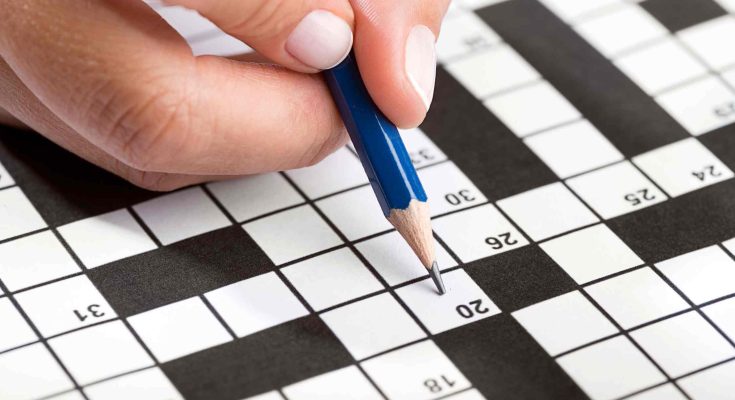Observational skills, those that help us to take in and understand information about what we see, are important not just in professional life, but also in our personal lives and relationships. Being able to take notice of small details, changes or differences can also have a profound impact on our cognitive abilities, as well as improve creativity and problem-solving skills. One way that many people find both fun and useful for honing their observational skills is through word games. In this article we will look at the importance of observation and some benefits you can expect from developing it with word games, as well suggest some popular ones that you can try yourself.
The Importance of Observational Skills
Being observant means being able to pick up on all kinds of details accurately. Whether it’s physical difference between two objects or interpreting non-verbal cues during a conversation – strong observational skills are invaluable for most things in life. Here are three areas where these skills play an important part:
Professional Life
When you’re in an environment where quick fixes and constant learning is happening, those who have strong observation skills will thrive in spots where they would usually struggle. Solving problems fast, pointing out errors in reports or even spotting market trends before anyone else does can give you an advantage that others won’t have.
Academic Success
Students who are observant tend to do better academically than those who aren’t. They’re often quicker at understanding concepts and analyzing information or relating new topics back to old ones which makes revision more effective too.
Personal Relationships
Have you ever noticed how sometimes someone close to you might say they’re fine but you know something’s bothering them because they weren’t making eye contact while talking? Those who are observant pick up on others’ emotions without needing explicit messages, enabling them to build deeper connections easier than others.
The Role of Word Games
While they may seem like just another fun pastime, word games are actually fantastic for exercising and improving your observational skills. They require you to pay close attention, identify patterns and think critically about the English language. Here are a few ways in which word games develop your observation:
Pattern Recognition
Many popular word games such as crosswords or anagrams involve players finding patterns within sets of letters/ words. Not only does this exercise your pattern recognition muscles but also helps with problem-solving across other areas.
Vocabulary Expansion
As players engage with more words, they’re continuously developing their vocabulary by learning new words and their definitions. Expanding vocabulary not only improves observation abilities but is beneficial for communication and comprehension too.
Attention to Detail
Games like Scrabble or Boggle make players focus on small things like letter placement and word formation. Each letter counts towards points so overlooking where one is placed could cost someone a win later down the line. Practicing attention to detail in an entertaining context helps people sharpen these observational skills without feeling forced.
Cognitive Flexibility
All word games make participants consider multiple possibilities before making one final decision. Whether it be coming up with new words through rearranging already played tiles or strategizing placements in order to score more points, having this cognitive flexibility allows you to solve problems with greater ease and innovate better than others who don’t possess this ability.
Popular Word Games Worth Trying
Given the benefits we’ve discussed above about using word games to develop observational skills, here are some popular options you can try yourself:
Scrabble
Scrabble is a traditional word game where players utilize letter tiles to build words on a game board. Players earn points dependent on the letters’ worth and the placement of the words on the board. Scrabble demands strategic thinking, vocabulary understanding, and sharp observation of letter patterns.
Boggle
In Boggle, players shake a tray of lettered dice then search for words created by connecting adjacent letters. The longer the word, the more points it receives. Boggle challenges players to quickly identify words within a jumble of letters, enhancing their observational and pattern recognition skills.
Crossword Puzzles
Crossword puzzles consist of a grid of white and black squares along with clues for horizontal and vertical words. Players fill in the grid with words that fit both the hints as well as the intersecting letters. Solving crossword puzzles necessitates a combination of vocabulary knowledge, deductive reasoning, and careful analysis of word patterns.
Anagrams
Anagrams require rearranging the letters of a word or phrase to create new ones. Players must determine which words can be made using the given letters, testing their vocabulary and pattern recognition abilities. Anagrams can be enjoyed individually or played competitively against multiple people.
Read More: The Collaborative Nature of Team-Based Word Games
Conclusion
Word games offer an enjoyable way to put your observational skills to work. By making use of language while having fun, players will gain an edge when it comes to spotting patterns quicker, expanding their vocabulary, and improving their attention span. Whether playing Scrabble, solving crosswords or taking apart anagrams, these types of games provide ample opportunities for cognitive growth that sometimes fly under people’s radar. So, next time you want something fun but also educational try putting together some tiles, doing some crossovers or taking on anagrams!




